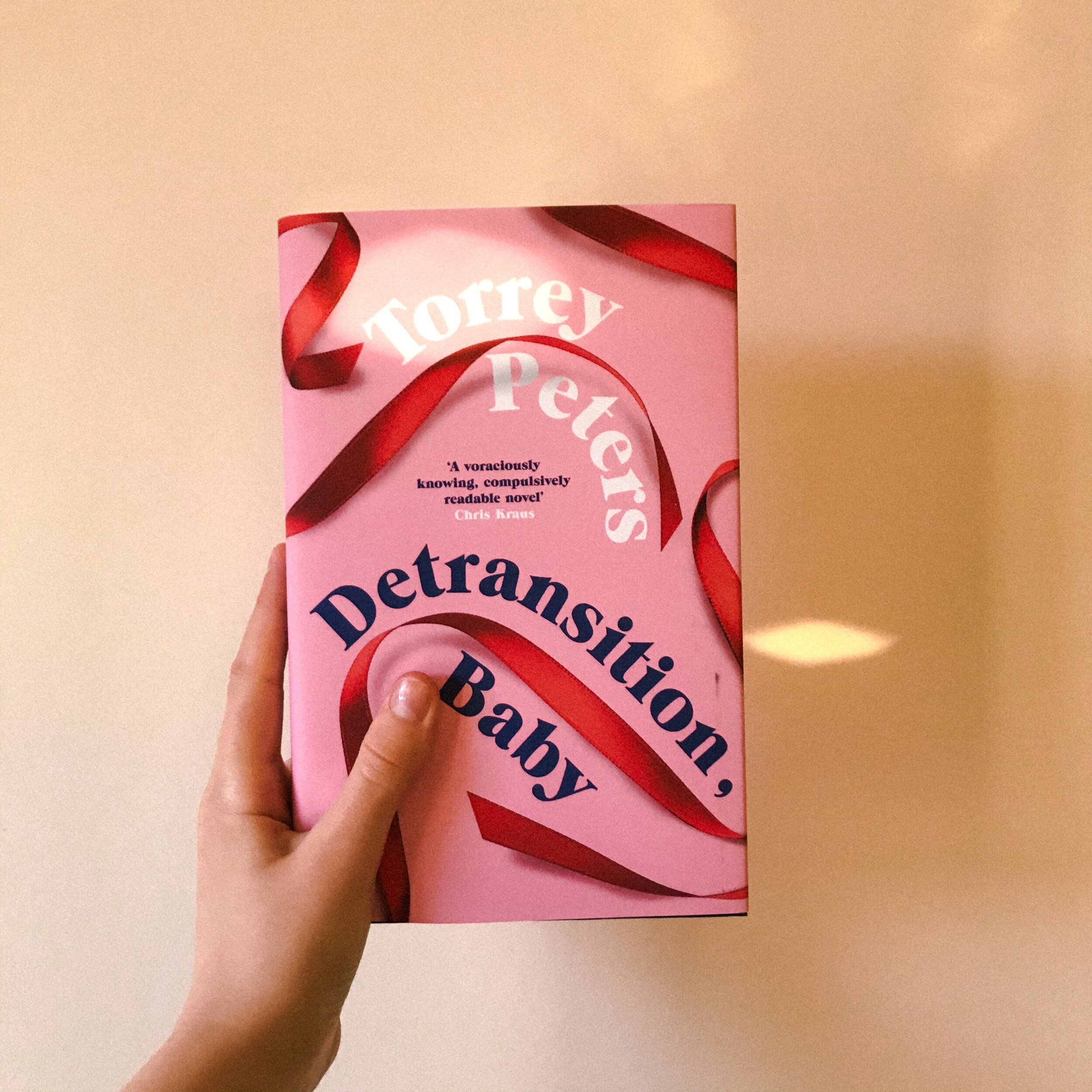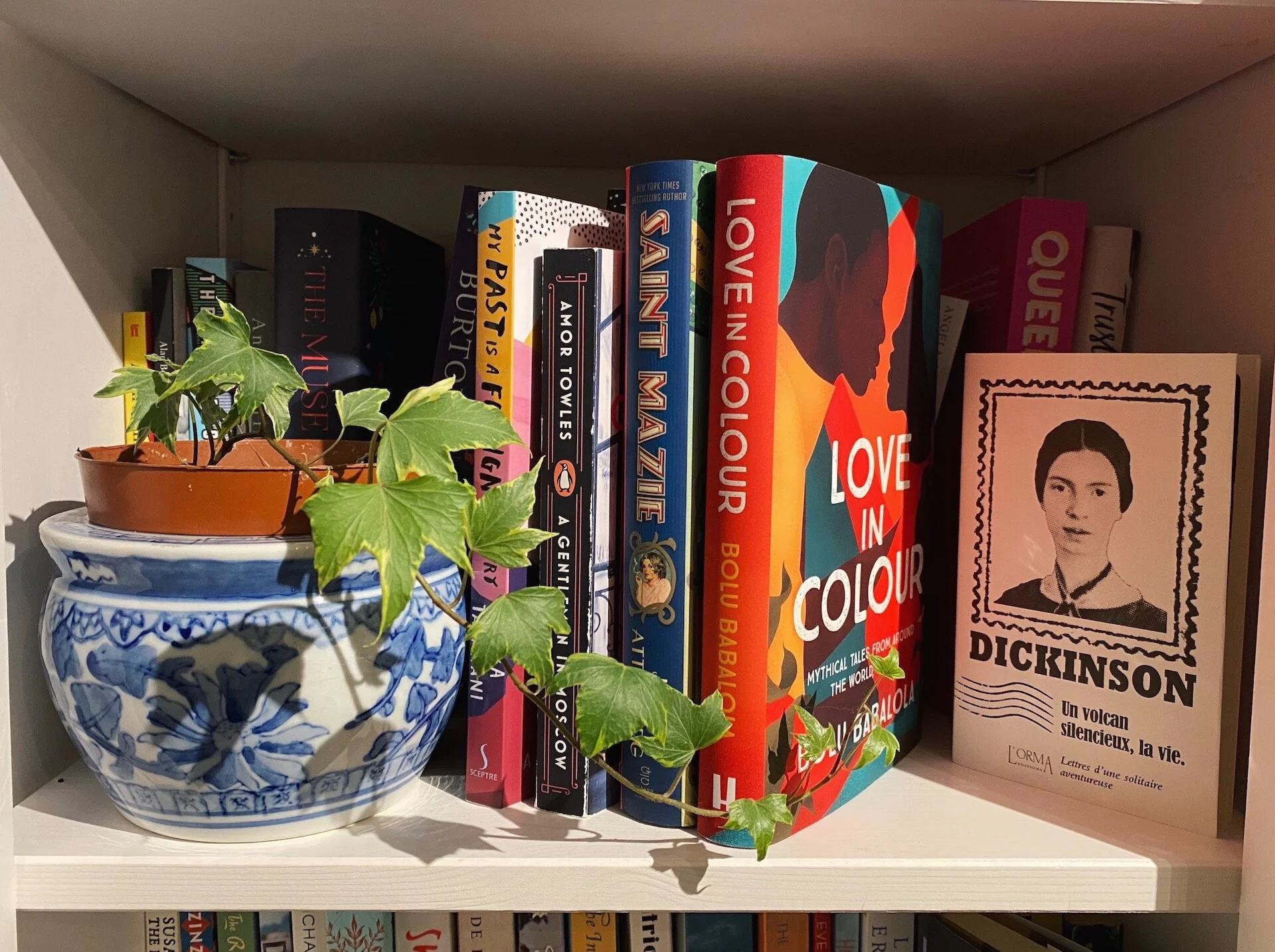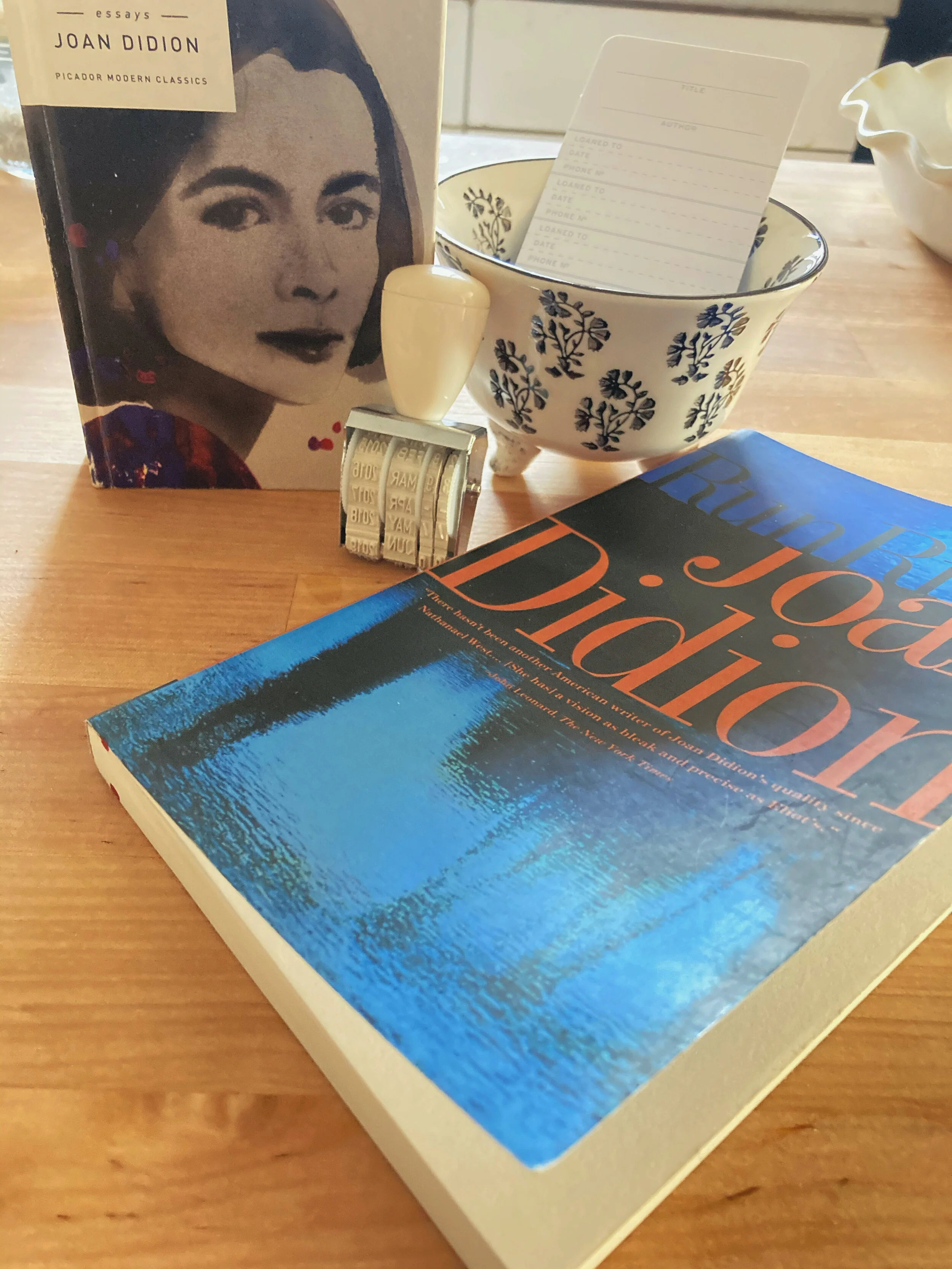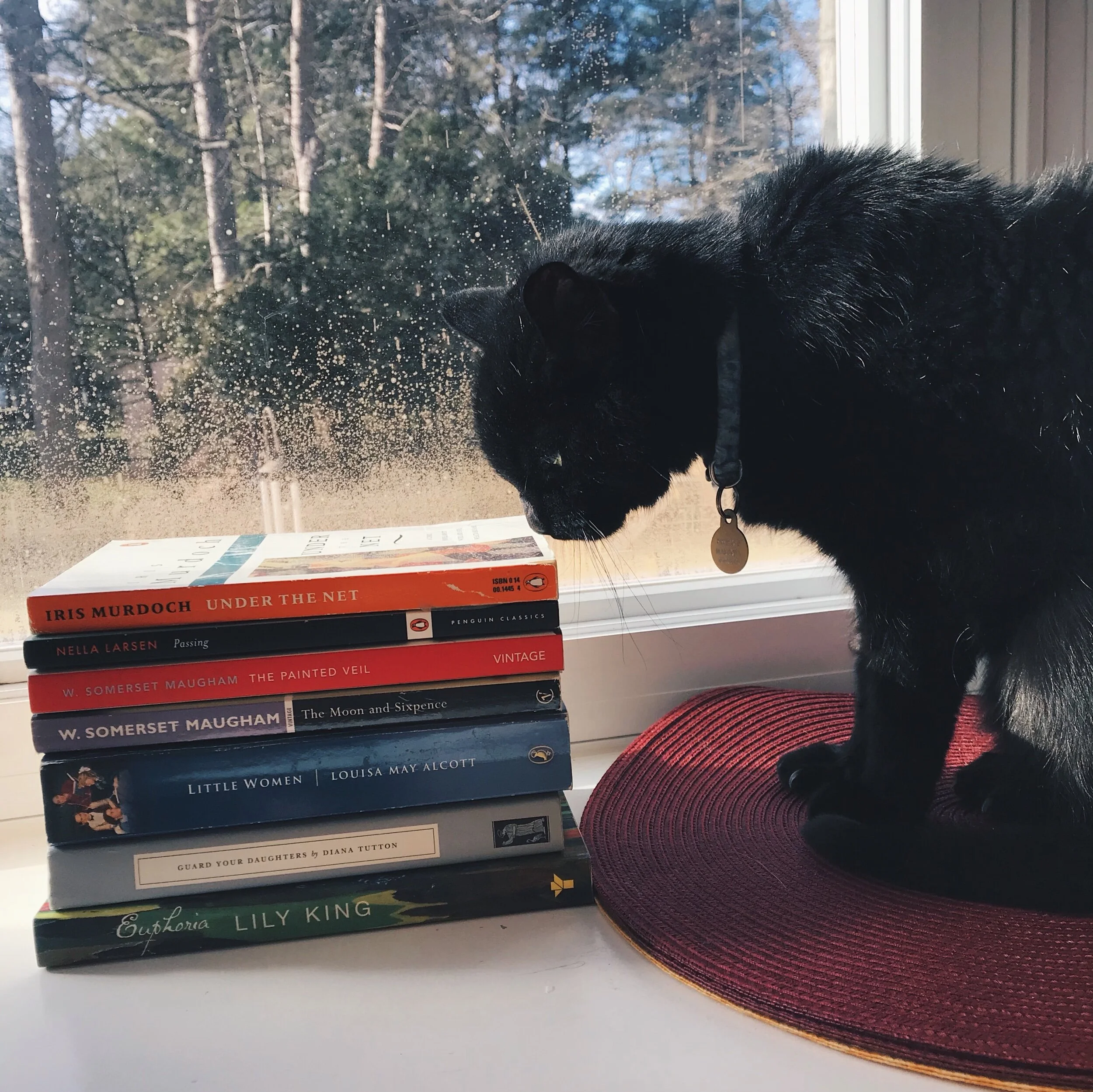What We're Reading, Vol. 12
Ah, September. The month where everything starts to feel real again – the crispness in the air awaking our minds and making us want to read as deeply as possible. We may not have the same amount of time at our disposal as in the summer, where lazy days reigned supreme and reads as casual as we deemed them, but we’re more motivated and every new word seems to ring a little more clearly. We’re back to ambitious schedules, clean slates, new projects, and regardless of time, having a good read nearby is more than necessary to keep us grounded. The official start of autumn may still be a few days away, but we’re bringing it with us as soon as possible.
Here’s what we’re reading this month:
Olivia Gündüz-Willemin
The book that’s stood out above all the others for me over the past few weeks has been Bernadine Evaristo’s Girl, Woman, Other. Evaristo’s eighth novel, it was recently shortlisted for the Booker Prize and came back to my attention as I remembered what our Rachel Tay had said about it earlier this year. My husband brought it home for me last week, and I’ve been both racing and pacing my way through the novel. Each of its twelve main chapters are devoted to different characters, and yet the novel has none of that choppiness that I’ve come to expect from a divided narrative structure – instead each chapter flows so smoothly that I’m barely aware of the fact that I’m reading, and the unexpected connections between some of the chapters come with a happy thrill. I’ve been allowing myself a chapter or two a day, and I can’t wait to see what comes next.
Once I’ve finished Girl, Woman, Other, I have a couple of books sitting on my night table that I’m desperate to read (despite the fact that I’m not currently allowing myself to read more than a book at once, in a perhaps futile attempt to keep my mind from racing in too many directions at the same time): Jia Tolentino’s Trick Mirror, Jessie Burton’s The Confession, and for our upcoming piece on campus novels, Muriel Spark’s The Prime of Miss Jean Brodie.
Jessica Armstrong
September has been a busier month than usual for me, but I’ve been trying to keep on top of my ever-growing to be read pile at the same time. As part of a new initiative I’ve started with a friend – The Graduate Book Club – I completed Ali Smith’s Autumn. Shortlisted for the 2017 Man Booker Prize, and dubbed the first post-Brexit novel, I am so glad that I picked it up (even if it was a year after its publication!). I wasn’t quite sure to expect beforehand, but the first in the seasonal quartet has left me in eager anticipation to read the others.
In Autumn, Ali Smith crafts a narrative that is on the one hand incredibly delicate and subtle, but on the other ablaze with anxieties and nuances the reader cannot help but consider in light of ongoing political turbulence.
I’ve been thoroughly enjoying the experience of reading and analysing, but without the pressure of being graded on it. Among the next books I want to read are Matthew Walker’s Why We Sleep, Olivia Laing’s The Lonely City, and Middle England by Jonathan Coe.
Rachel Tay
Are there already enough jokes in the world about the magnificently inventive form of Ducks, Newburyport? In any case, let’s just say that I’ve spent the first week of September reading one sentence and one sentence only — one long sentence, one stream-of-consciousness, one which spans the length of a thousand-page novel and the life of one middle-aged housewife in Ohio. You get the gist. But despite its newfound epithet, gained especially after the first reactions to its nomination for the Booker Prize were in, Lucy Ellmann’s latest is anything but a long sentence for its readers. Its narrator is as once acerbic and funny, charming and warm, intelligent yet humble about the way she looks upon — and imposes herself on — the world. That is, in a way that only a mother too long dedicated to the service of others can be. Certainly, the sheer heft of the book can be daunting, but I don’t believe I’ve ever regretted any moment spent with Ellmann’s narrator. Rather, it is when one puts down the book and leave its comforting company that one begins to long, once again, for the kind devotion and generosity that lie at its heart.
What next? I have Sadiya Hartman’s Wayward Lives, Beautiful Experiments on my desk at the moment, the central project of which — to retrieve the stunning and lost histories of wayward women from the archive — I am particularly interested in, so I cannot wait to get to it. Besides this, I’m quite fervently anticipating Leslie Jamison’s new essay collection, Make It Scream, Make It Burn, having been a fan of hers for years.
M.A McCuen
September as a teacher means that I am teaching and rereading Brave New World, Beowulf, and The Crucible at the same time. This makes pleasure reading time harder to come by, but because of that, even more important. I read Diana Evans’ Ordinary People quite slowly through July and August. I recommend it in my London literature article because she writes so beautifully about the city and weaves the history of London in with the lives of the characters in such a clever way. I also read The Paper and Hearts Society by Lucy Prowrie. It was a fun and adorable YA read about a book club of misfits. While obviously not for everyone, I adored it and thought it a perfect fit to pass on to some of my own bookish, misfit students.
I am currently balancing two reads. As a good-bye to summer (and because it was only £10 at Foyles this summer), I’m reading Sweet Sorrow by David Nicholls. It’s a wistful coming-of-age about a boy in a summer theater program. I haven’t read anything by Nicholls before, but I’m enjoying it so far. I also recently picked up Permanent Record by Mary H.K. Choi. So far, It’s like a diverse, contemporary Notting Hill: a famous girl meets a bodega-working boy and of course, there is A Connection. I’m 100 pages and can’t put it down!
Lauren Olmeda
I’m about halfway through Lethal White by Robert Galbraith (pseudonym of JK Rowling), and I’m loving it. I’m a sucker for crime novels in general, but Rowling’s writing is so familiar and brilliant that I find myself actually looking forward to my commute so I can read uninterrupted for a good while. In the novel, the detective Cormoran Strike receives a visit from a man who claims to have seen a child strangled when he was young; the man is clearly unstable, but something about his story sticks with Strike and things become even stranger when Strike is hired by a government minister to investigate an allegation of blackmail. Are the two issues connected? Obviously, and I’m dying to figure out how. Strike and his detective partner Robin Ellacott have a professional relationship that makes for fantastic reading, but I have to admit I’m also sucked into their romantic tension – Robin has recently married her childhood sweetheart but the marriage is unhappy, while Strike has a string of girlfriends he lets go before things get too serious. It’s a cliche, but I’m fully invested in the “will they, won’t they” aspect of the story.
Next up on my list is The Life and Death of the Great Lakes by Dan Egan, which I picked up this summer while I was at home in Michigan. I’ve never read any books on climate change, partly because it terrifies me and also because science isn’t my area of interest. But my sense of existential dread combined with the Great Lakes being my home made me pick up this book, which chronicles the ecological catastrophe happening in the lakes that are the world’s largest expanse of freshwater. Can’t wait to be kept up at night with thoughts of the rapid, irreversible destruction of the climate!
Raquel Reyes
As the first few leaves fall this weekend, I am finally feeling hints at change, although up until this point the month had been quite a rollercoaster. As Hurricane Dorian ravaged nearby regions and made its way through the southeast, I spent most of my time anxiously knitting and watching comfort TV, but also spent some time flipping through old favorites. As we’re on the subject of Booker winners, Eleanor Catton’s 2013 winning The Luminaries was one of those titles that struck me when I first read it years ago and so consumed my thoughts it took an entire summer of reading and re-reading out of my life, and which I still think about now and again. At over 800 pages it’s nothing short of ambitious, and though I didn’t re-read the entire thing, having underlined several passages before helped to find my favorites and worked to calm my anxious mind.
Moving onto autumnal things, as Olivia mentioned, I’m flipping through a few titles to compile our upcoming updated campus novels list. You’ll have to return for the official list, but two I’ve read this week and can say probably won’t make the cut are J.D. Salinger’s Franny and Zooey and Anne Serre’s The Governesses. Don’t get me wrong, I would still heartily recommend these (at this time of year especially), however neither is quite as campus-y as I had initially thought or remembered. Starting the weekend of a college football game, Franny and Zooey follows the siblings as they come to terms with their upbringing and grapple with adulthood. We all know I love a good family plot and with her mild existential crises and disaffected 50s style, Franny Glass is a girl after my own heart.
The Governesses is a perfect early autumn read too, as it carries warmer weather but with its guise of following the minds and activities of a set of young women living on a private estate where they school a group of young boys, it has just enough autumnal airs to it. Though they celebrate lazy afternoons and indulge in the early crisp of harvest weather, planning grand parties in fine dresses, their true nature quickly begins to show and Serre’s fairytale takes on the dark edges so familiar in our favorite bacchanalian reads such as Mona Awad’s Bunny and Donna Tartt’s The Secret History. It’s a quick one, and I enjoyed it in particular as I read it on my porch deck while watching the full moon this past Friday night.













Reading Naoise Dolan’s Exciting Times and Katie Kitamura’s Intimacies, Rachel Tay explores the unease of moving away from one’s own country and language.